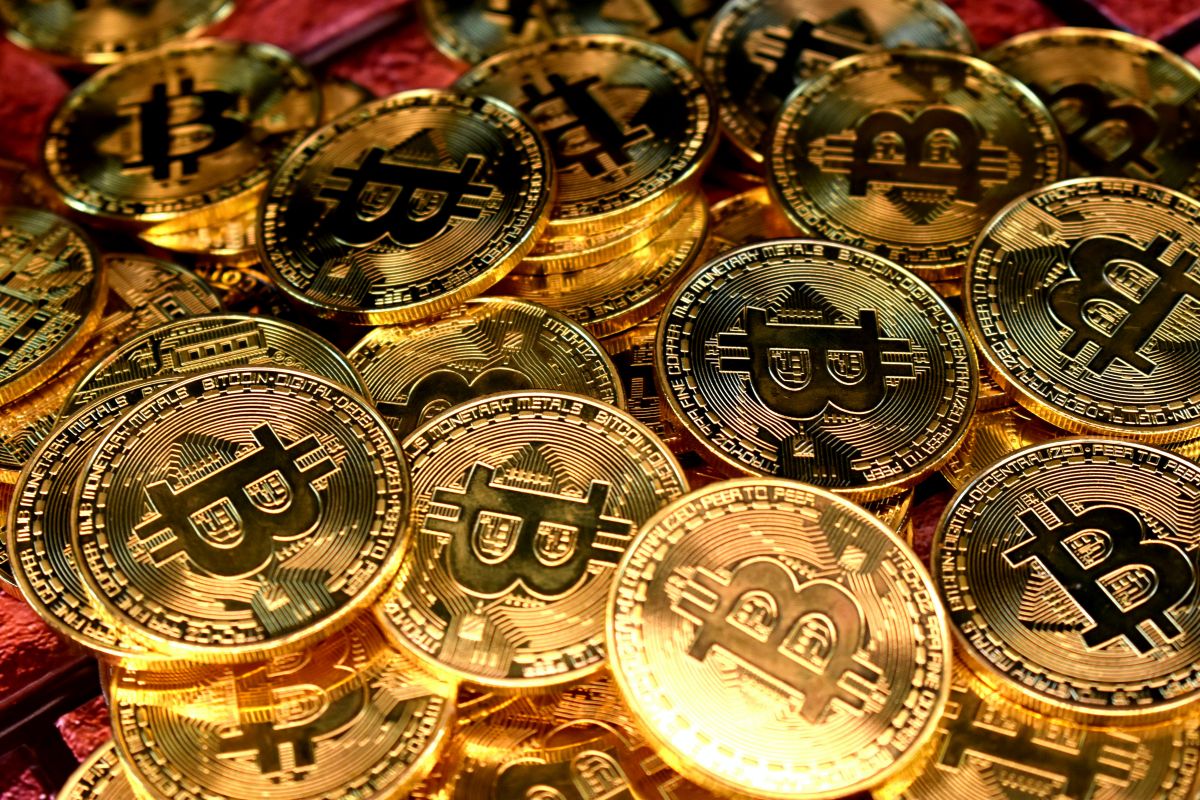Could Bitcoin fundamentally alter inflation rates in emerging economies? This year, 2023, may provide us with essential insights into this matter!
Introduction
In many parts of the world, inflation has been a rampant issue, especially in poorer nations where the spike in prices can lead to dire consequences. When everyday expenses rise dramatically and the local currency depreciates, it becomes increasingly hard for people to buy necessary supplies, leading to significant economic turmoil. Here, Bitcoin presents an innovative solution to tackle inflation in developing countries.

- Introduction
- Developing countries and poverty
- Examining Bitcoin's influence: developed vs. developing regions
- Can Bitcoin help bank the unbanked?
- In what ways does cryptocurrency enhance the situation in developing nations?
- Why is inflation a problem?
- Why are lesser-developed countries turning to Bitcoin?
- Which nations have embraced Bitcoin as an official currency, and through what processes have they achieved this?
- FAQs
- Conclusion
The ability of Bitcoin to help mitigate inflation in developing economies is influenced by various factors, but its potential is hard to ignore. Given its decentralized structure and worldwide accessibility, Bitcoin presents a compelling alternative to conventional currency systems that are often henpecked by governmental or central bank interventions. Furthermore, as awareness of Bitcoin's benefits grows and more individuals adopt it for transactions, an uptick in its value with rising demand could ensure more stable pricing for those in these regions when purchasing essentials.
Moreover, Bitcoin streamlines cross-border transactions, which is especially advantageous for residents of developing nations that frequently have restricted access to banking infrastructures. Utilizing Bitcoin means individuals can transfer funds swiftly and at a lower cost, bypassing traditional banking protocols. This not only alleviates burdensome fees but also combats inflated exchange rates that threaten their financial stability.
Lastly, Bitcoin may provide fresh economic prospects in developing regions. It enables businesses to accept payments from global clients, thereby expanding their market reach and subsequently elevating their customer base. Such developments can stimulate economic expansion, foster job creation, and enhance living standards for those in these countries.
In summary, Bitcoin undoubtedly holds promise as a countermeasure against inflation in developing nations. developing countries Its decentralized attributes, worldwide reach, and streamlined operation position Bitcoin as an excellent candidate for those navigating financial challenges in these regions. With appropriate regulations to safeguard users, Bitcoin could serve as a credible alternative to traditional currencies, thereby fostering economic growth for those who stand to benefit most.
Developing countries and poverty
According to findings from the World Bank, consumer price inflation across low, middle, and high-income nations averaged 9.1% at the close of its annual report in June 2022. This marks the most significant surge in inflation seen in four decades.
A large portion of the world’s impoverished population resides in developing nations. World Vision estimates that around 1.3 billion people in 107 developing countries are experiencing multidimensional poverty. This figure represents a staggering 22% of the global populace, with a significant majority residing in South Asia and sub-Saharan Africa.
Multidimensional poverty Multidimensional poverty encompasses various challenges, including financial hardship, poor health, inadequate education, violence, and a lack of empowerment. Inflation remains a critical issue for many in developing nations.
Why is Inflation Such a Critical Issue in Developing Nations?
Those living in poverty are especially susceptible to the effects of inflation. These individuals tend to allocate a higher proportion of their income towards essential needs such as food and fuel, which become increasingly costly during inflationary periods. This situation often leaves them with diminished funds for other expenditures or may force them to minimize spending on essentials just to survive.
Even if someone is fortunate enough to save, the value of those savings depreciates, making it all the more difficult to fund investments. Rising prices erode purchasing power, ultimately complicating growth opportunities for businesses and perpetuating poverty.

Strategies Developing Nations Can Employ to Combat Inflation
- Implementing price controls involves the government setting maximum allowable prices on select goods and services. While this strategy can help stabilize prices, it might also create shortages if businesses are unable to raise prices to meet operational costs.
- Another method is adjusting monetary policy, where governments modify interest rates and the money supply to regulate inflation. This approach can yield results but might lead to broader economic instability.
Given that Bitcoin bypasses many of the control ties affixed to traditional fiat currencies, it allows for payments that sidestep inflation concerns. Bitcoin It also facilitates international money transfers without incurring hefty fees.
Examining Bitcoin's influence: developed vs. developing regions
In regions where financial ecosystems often face instability or are practically nonexistent, Bitcoin's impact can be particularly profound. Here, it can deliver access to financial services that would otherwise remain out of reach and tackle inflation through a more consistent value store.
While the price of Bitcoin does exhibit fluctuations, the general trend over time has been upward. Consequently, holding Bitcoin can lead to an increase in purchasing power over the long haul. This stands in stark contrast to fiat currencies, which frequently grapple with inflationary pressures.
Individuals residing in nations with volatile currencies frequently leverage Bitcoin for international remittances, avoiding high fees. For example, someone in Venezuela can use Bitcoin to send money to relatives in the United States, sidestepping the exorbitant costs linked with fiat currency transfers.
For those in developing nations, Bitcoin can serve as a valuable resource, offering access to financial services while acting as a buffer against inflation.
Can Bitcoin help bank the unbanked?
The most vulnerable populations globally are often situated in regions lacking reliable banking options. Residents may turn to informal financing methods such as money lenders and pawnshops, but these avenues can be prohibitively expensive, ensnaring individuals in cycles of debt due to excessive interest rates and fees.
Bitcoin has the potential to extend banking services to those without access. For instance, transferring funds using Bitcoin is both rapid and cost-effective, granting individuals from economically fragile locales access to crucial financial resources.
By facilitating access to banking services and acting as a dependable store of value, Bitcoin can stimulate entrepreneurial ventures and attract investment in developing countries. This, in turn, can yield job creation and promote economic progress.
In what ways does cryptocurrency enhance the situation in developing nations?
Compared to existing currencies in numerous nations, Bitcoin offers a more stable financial alternative. Cryptocurrencies, by nature, face fewer inflationary pressures than traditional fiat systems, enabling them to function as an inflation hedge. Additionally, Bitcoin offers an efficient and economical means for international money transfers. Conventional routes like wire services can be costly and slow, while Bitcoin provides a swift and budget-friendly option. This could significantly aid those in developing countries who need to send financial support back home. Bitcoin transactions Developing countries frequently endure soaring inflation, influenced by factors such as governmental corruption, poor economic practices, and currency depreciation.
Why is inflation a problem?
Bitcoin can provide some solutions to combat inflation:
As a decentralized currency, it is insulated from the lobby and whims of governments or central banks, significantly reducing its vulnerability to inflationary pressures.
- The limited supply of Bitcoin — capped at 21 million coins — establishes it as a rare asset, presenting an effective hedge against inflation.
- The divisibility of Bitcoin enables its use in acquiring goods and services regardless of price escalation.
- Transporting and storing Bitcoin is more straightforward, allowing for savings and investments without the fear of theft or loss.
- With more businesses accepting Bitcoin, its popularity continues to grow.
Users in developing nations are discovering a myriad of benefits that Bitcoin provides.

Why are lesser-developed countries turning to Bitcoin?
Acquiring Bitcoin is generally less complicated than checking out traditional fiat currency.
- Its value is also less susceptible to market fluctuations, making it a more robust storage option.
- You can send money across borders without incurring exorbitant fees or restrictions.
- Being decentralized, Bitcoin isn't controlled by any government or financial institution. This makes it less vulnerable to inflation since no central authority can generate additional currency and devalue existing holdings.
- Transactions in Bitcoin are pseudonymous, making it harder to trace back to individual users, a noteworthy advantage in regions ruled by oppressive governments that may surveil dissenters.
- This is why Bitcoin is quickly gaining traction in developing nations as a strategy to alleviate the impacts of inflation and financial oppression.
In June 2021, El Salvador made headlines by becoming the first nation to adopt Bitcoin as an official currency. President Nayib Bukele took to Twitter to announce this landmark decision, celebrating the legislative body’s overwhelming approval of his proposal.
Which nations have embraced Bitcoin as an official currency, and through what processes have they achieved this?
Can Bitcoin truly play a role in fighting inflation in developing nations?
Inflation is a pressing concern that affects various regions across the globe. Nevertheless, Bitcoin holds promise as a potential solution to mitigate inflation in developing countries.
Could Bitcoin significantly lower inflation rates in emerging economies? As 2023 unfolds, we are on the brink of discovering this!
FAQs
Introduction: Lately, inflation has emerged as a widespread issue, but its repercussions are particularly severe in underdeveloped nations. As the costs of goods and services escalate while local currencies lose their value, many people struggle to afford basic necessities, leading to a precarious economic situation. Bitcoin may present a viable alternative to counteract inflation in these regions.
FTC's appeal fails in efforts to prevent the Microsoft-Activision partnership.
Published: November 3, 2022, at 6:00 PM. Updated: December 11, 2022, at 2:46 AM.
To enhance your experience in local languages, we sometimes utilize an auto-translation plugin. Keep in mind that these translations may not always be precise, so please approach with caution.
In recent times, inflation has been a universal challenge, yet its consequences can be dire in developing nations. Rising prices of essential goods and services combined with depreciating local currencies place a heavy burden on people, potentially resulting in economic turmoil. On the brighter side, Bitcoin could be a beacon of hope in addressing inflationary challenges faced by these regions.
Examining Bitcoin's effect on developed versus developing nations.
In what ways can cryptocurrency boost the prospects of developing countries?
What motivates third-world nations to adopt Bitcoin?
Conclusion
Which countries have recognized Bitcoin as legal tender, and how has their transition been facilitated?
Related articles:
- The answer to whether Bitcoin can assist in alleviating inflation revolves around several variables. However, it is clear that Bitcoin possesses significant potential to tackle inflation in developing regions, thanks to its decentralized structure and worldwide accessibility. This cryptocurrency provides an alternative to conventional currency systems that may be vulnerable to governmental or central bank manipulations. Additionally, as awareness grows around Bitcoin's advantages and its adoption for transactions increases, its value might appreciate, allowing individuals in developing nations to enjoy relatively stable prices when acquiring goods and services.
- Bitcoin halving: The ultimate guide
- Moreover, Bitcoin streamlines cross-border transactions, which is particularly advantageous for people in developing countries where banking infrastructure may be lacking. By opting for Bitcoin, individuals can send and receive funds rapidly and affordably without having to rely on traditional financial channels. This circumvents the burden of exorbitant transfer fees and unfavorable exchange rates that often diminish their buying power.
Disclaimer
In line with the Trust Project guidelines Ultimately, Bitcoin could open doors to greater economic opportunities for residents in developing nations. By enabling businesses to accept payments from a global audience, they can tap into broader markets and expand their customer base, leading to an upward trajectory in economic growth, job creation, and enhanced living standards.







